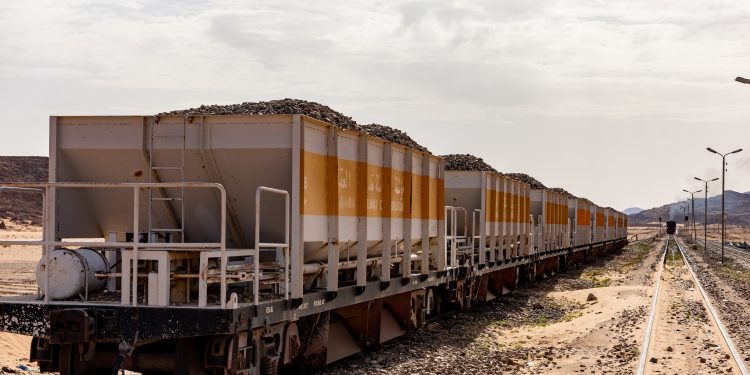In the heart of Saudi Arabia, a significant shift is underway within the mining sector, which is set to become an instrumental component of the country’s economic diversification strategy as part of Vision 2030. The Kingdom’s vast mineral resources, valued at approximately SAR 9.4 trillion ($2.5 trillion), are being eyed as an alternate revenue source to complement the traditional oil and petrochemical industries.
To hasten the mining sector’s development, Saudi Arabia has enhanced its estimated mineral reserves and devoted SAR 682.5 million ($182 million) towards exploration incentives by the close of 2023. The government’s commitment is further demonstrated by the granting of 152 new industrial licenses in January 2024 by the Ministry of Industry and Mineral Resources. These new permits include 20 for non-metallic mineral products and 19 for the manufacturing of metal products, barring machinery and equipment.
A report from the National Industrial and Mining Information Center revealed that the 152 industrial licenses issued since the start of 2023 have contributed to the total count of operational and under-construction factories in the Kingdom, reaching 11,672 by the end of January 2024, representing a total investment of SAR 1.539 trillion.
Noteworthy gold deposits have been identified along a 100 km expanse in the Mansoura and Masara mines, with an expected yearly output of 250,000 ounces of gold, highlighting the untapped potential of the nation’s mineral wealth.
These mining sector advancements align with the comprehensive strategy of Vision 2030, which seeks to leverage the full potential of the sector, thereby propelling economic and social advancement in accordance with the Kingdom’s ambitious goals for the coming decade.
Eng. Khalid Al-Mudaifer, Vice Minister of Industry and Mineral Resources for Mining Affairs, has outlined several government initiatives aimed at advancing the mining sector. These initiatives include creating a conducive business environment, simplifying the licensing process via the Mining Investment Law, minimizing environmental impacts, maximizing local community benefits, and launching an extensive geological survey program to collect essential data.
The Saudi Industrial Development Fund is pivotal in funding advanced exploration and mining projects, covering up to 75% of the eligible costs, according to Al-Mudaifer. The fund also offers financial solutions to support mid-tier and lower-end manufacturing, small and medium-sized enterprises (SMEs), digitalization, renewable energy projects, and initiatives to bolster local content within the sector.
The Ministry of Industry and Mineral Resources has released its monthly report, shedding light on the state of industrial activity in Saudi Arabia. The report underscores the surge in new industrial investments and includes mining sector data up to December 2023. It highlighted a 10% increase in operational factories in 2023, reaching 11,549 from 10,518 in the previous year. It also noted a rise in new industrial licenses to 1,379, with a collective investment surpassing SAR 81 billion, and the commencement of 1,058 new factories, indicating investments worth SAR 45 billion.
Saudi Arabia’s economic transition in mining is marked by a comprehensive three-phase approach:
- Mining Activities – Involving exploration, survey operations, economic feasibility assessments, mine development, and raw material processing.
- Intermediate Industries – Comprising refining and smelting processes to produce primary materials like aluminum alloys and steel blocks.
- Conversion Industries – Focused on manufacturing semi-finished products, such as metal sheets, and finished goods like pipes and bars.
Further bolstering the sector, the ministry has launched accelerated exploration programs and the Saudi Mining Services Company (ESNAD) initiative, which aids mining directorates, enhances monitoring and control measures at mining sites with advanced tools and technologies, and supports revenue and fine collection.
This initiative promises to improve compliance with environmental, health, and safety standards, safeguarding miners and local communities, boosting efficiency in resource monitoring, and increasing state revenue.
The Saudi Geological Survey has initiated a national geological information program to provide detailed geological data and maps, conduct aerial and geochemical surveys across the Arabian Shield, and spur investment in mineral exploration.
The logistics sector is also playing a role in enhancing the mining sector’s appeal by offering competitive solutions for transporting raw and processed minerals to smelters and industrial city factories.
These collective efforts are projected to amplify the mining sector’s contribution to the GDP, targeting SAR 176 billion by 2030. They aim to enhance the trade balance, ensure the sector’s sustainability, create more jobs, increase exports, boost non-oil revenue, and localize manufacturing, aligning with the Kingdom’s strategic economic goals.


